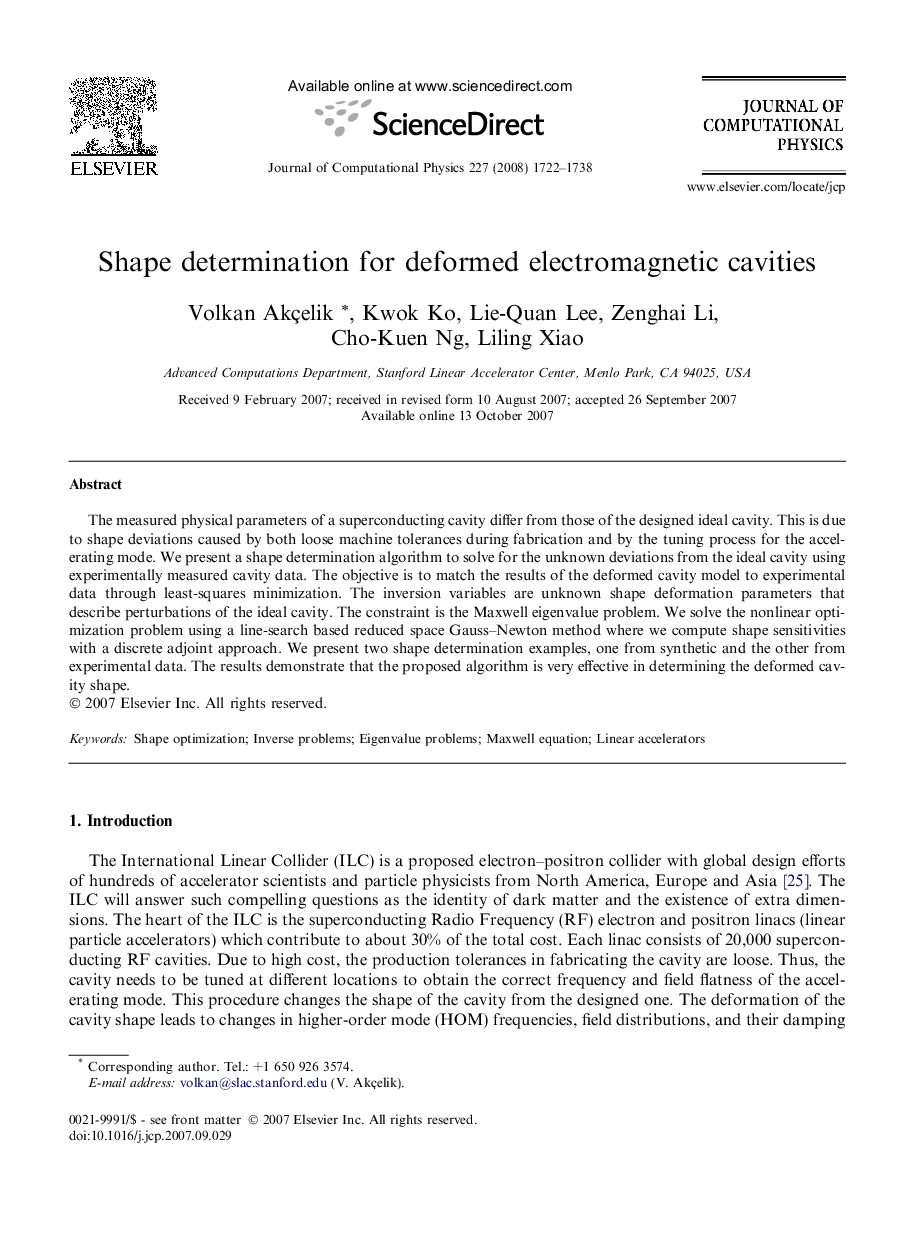| Article ID | Journal | Published Year | Pages | File Type |
|---|---|---|---|---|
| 522210 | Journal of Computational Physics | 2008 | 17 Pages |
The measured physical parameters of a superconducting cavity differ from those of the designed ideal cavity. This is due to shape deviations caused by both loose machine tolerances during fabrication and by the tuning process for the accelerating mode. We present a shape determination algorithm to solve for the unknown deviations from the ideal cavity using experimentally measured cavity data. The objective is to match the results of the deformed cavity model to experimental data through least-squares minimization. The inversion variables are unknown shape deformation parameters that describe perturbations of the ideal cavity. The constraint is the Maxwell eigenvalue problem. We solve the nonlinear optimization problem using a line-search based reduced space Gauss–Newton method where we compute shape sensitivities with a discrete adjoint approach. We present two shape determination examples, one from synthetic and the other from experimental data. The results demonstrate that the proposed algorithm is very effective in determining the deformed cavity shape.
